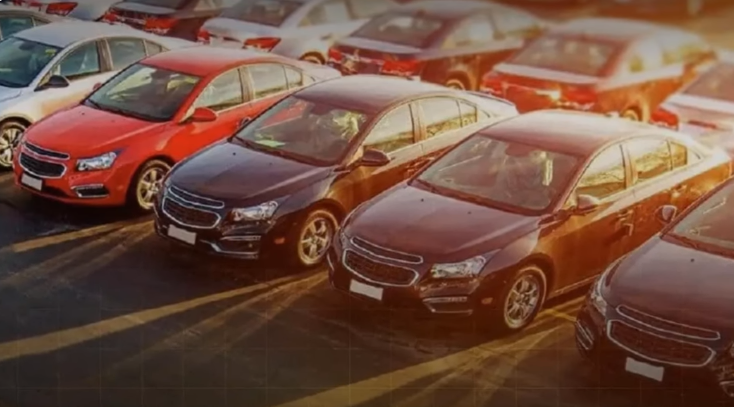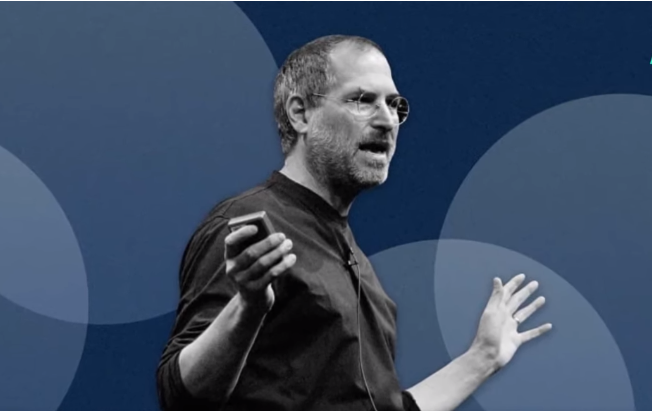Norio, a Japanese financial expert and author of the book "The Art of Earning 300 Million Yen at 33," pointed out the difference between how the rich and the poor spend money. He believes that the rich, despite being financially abundant, rarely waste money on things that are not worth it. Meanwhile, the poor, who are not financially well-off, often spend extravagantly. This is considered one of the reasons why the rich get richer, while the poor remain poor. Below are the things that millionaires often refuse to spend on, while many others, despite being broke, still want to borrow money to buy them at all costs.
1. A house beyond affordability

This is a typical and common mistake among real estate buyers. Most people have the mindset of wanting to own a spacious, airy house in a prime location with various amenities; these factors are not wrong. However, before spending money on anything, especially high-value products like real estate, you need to look at your personal financial situation and capacity. Many people are influenced by the crowd effect and spend too much money on mortgage payments, only to find themselves unable to repay the bank on time.
In reality, human nature always wants a little more than what they can afford to borrow for a house. Therefore, you should be cautious and not be tempted to buy a house beyond your means, as this will push buyers into a difficult situation, facing many financial and psychological downturns. Before buying a house, you need to consider how much money you have, calculate the monthly mortgage payment, and you should not borrow more than 50% of the house's value and not exceed 30% of the family's total monthly income. Additionally, if there are other debts outside of the mortgage, the mortgage ratio should be lower than those figures.
A house, if only used for living, will become a liability, and liabilities only make the owner poorer, while those with money and financial thinking often buy houses to invest, meaning they buy low and sell high for profit. I chose to buy a small house so I could pay off debts quickly, retire early, and travel comfortably throughout the year. With my financial capacity, I could still buy a larger and more expensive house, but both my husband and I do not want to. Holly Jon, a financial expert from Business, shared: Elon Musk, the richest billionaire in the world, was also referred to by Time magazine as "the man who is rich but does not own a house."
It may sound unbelievable, but in fact, the CEO of America's largest electric car company sold off some properties to free up capital to realize SpaceX's goal of conquering space. If you really want to buy a house, buy one that fits your budget as long as you can live in it, and do not pursue luxury beyond your means. For ordinary families, tightening the belt to save money and buying an overly expensive house just for living is pointless.
2. A new car

Typically, a new car will lose 10 to 20% of its value in the first year. The rich do not want to buy something that depreciates like that; for most, vehicles are merely a means of transportation and a liability, not something to flaunt wealth. Wealthy individuals can thus stick with their old cars for many years instead of constantly upgrading. Those with hundreds of thousands or even millions of dollars in the bank will drive an average car for 5 years, personal finance experts say.
Additionally, some people prefer to buy used cars, believing that a durable car is the most valuable asset. There is nothing more wasteful than buying a new car; it is one of the worst financial decisions one can make. David Bach, a self-made millionaire in the U.S., said: A new car may seem attractive to many, but it is not worth your money. Many poor Vietnamese, despite lacking a car, look down on those who drive old cars. I read an article suggesting that young Vietnamese should consider: a car around 200 million, where the author argues that it is reasonable.
Why do we struggle to borrow heavily to buy a new car, then bend over backward to repay debts while a used car within our budget could be found? In reality, it is just a psychological issue; those who have never owned a car often know little about them. These individuals look into used cars but only focus on the negatives, such as a 5-year-old car being seen as a pile of scrap metal, then buying it and turning it into a debt, and the high costs of maintaining an old car scare them, leading them to join the crowd in criticizing old cars.
Some people may think that since they can only buy a car once in their lifetime, they should buy a new one to show off and feel proud. In my opinion, spend only what you can afford when buying a car, with a slight fluctuation within your budget. A car is just a means of transportation; it is only safer than a motorcycle, so do not glorify it. If you buy a used car, be prepared to invest time in finding one, ask experienced people to check it thoroughly before spending money. If you have the means, investing about 10 to 15 million for upgrades and maintenance can make it run well; new cars can also have risks after a few months.
3. Discounted items

The 21st century is the era of booming e-commerce, where anyone can sell, from celebrities to unknown individuals, resulting in rampant sales that encourage people to shop everywhere. This is why e-commerce can dominate today's society. Besides after-sales service and convenience, there are also low prices. Promotions like attractive gifts when purchasing often hypnotize many people into continuous shopping. Even though many items are never used, low-income individuals are often attracted by these promotions, thinking they will get some things for free.
However, the rich do not care about such small amounts of money. For them, time and energy are extremely valuable; they would rather spend time doing more meaningful things than watching live shopping streams or browsing e-commerce platforms. Meanwhile, some poor individuals who are immersed in online shopping all day will find themselves getting poorer, and the gap with the wealthy will continue to widen.
4. Luxury branded goods
In television dramas, the lives of the rich are depicted with an abundance of expensive items, from clothes and shoes to handbags worth hundreds of thousands of dollars. Their closets are even larger than the bedrooms of many people. But that is just fiction; the truly wealthy do not care much about their appearance as portrayed in films. The reason they become wealthy and own significant assets is due to a different mindset compared to ordinary people. While low-income individuals spend a lot of time grooming themselves to feel more confident, the rich see this as a waste of time and energy. When purchasing luxury items, people often have two mindsets.
The first is to showcase their identity in front of others. Many believe that the rich tend to spend extravagantly, buying luxury items to display their status. However, most wealthy individuals do not crave luxury goods because they understand what they want. Meanwhile, the poor and some self-proclaimed wealthy individuals are overwhelmed by the lavishness. The second mindset when buying luxury items is that they are disguising themselves. Some fear being looked down upon by others, so they use luxury items to cover up, but in reality, this behavior only exposes their inner insecurities.

Steve Jobs, the co-founder of Apple, always wore a black t-shirt, jeans, and sneakers; he hardly bought any other types of clothing. According to this billionaire, he did not want to waste time on unrelated matters. The reason for Steve Jobs' simple dressing style is also that he wanted to create an optimal consistency between his personal brand and the brand he was running. When people think of Steve Jobs, they immediately remember his personal brand and envision what kind of person he is and what that corporation is like. This is the difference in mindset of the rich; most poor people focus on appearances, while what the rich truly care about is a philosophy of life, which is the very philosophy that has led them to their current achievements.
5. Electronic products
Whenever Apple releases its latest mobile model, it is not uncommon to see many young people skipping work or school to line up to buy it, and some even sell their kidneys to get a new phone. Why do electronic products have such a strong appeal? The reason is that owning them brings an unprecedented sense of satisfaction; many believe that just by having the latest electronic product, their quality of life will improve. For them, electronic items also symbolize their living standards. This creates a habit of wasteful spending on electronic products. Meanwhile, the rich always understand that electronic products are just utility items and are among the fastest-changing goods in the world.
The breakthrough between old and new products is not as significant as many people think, which is why they are not passionate and often buy less. For wealthy and busy individuals, using phones or electronic devices for unimportant tasks can sometimes be a waste of time.
